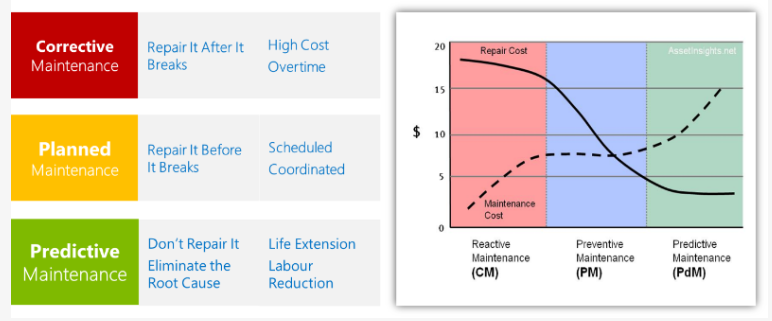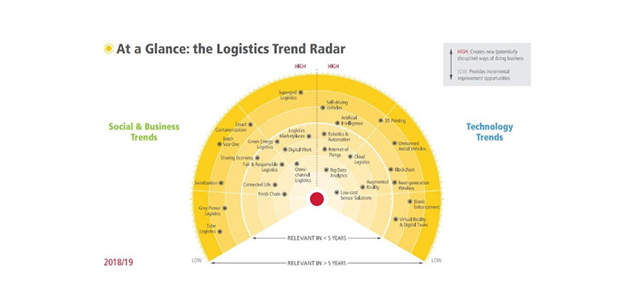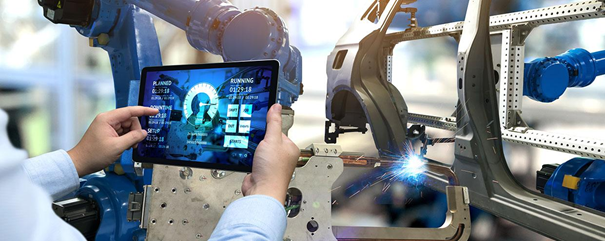|
Getting your Trinity Audio player ready...
|
Machine learning in manufacturing is the best way for companies to derive new knowledge from historical manufacturing data. The technology enables digital systems to identify recurring patterns in data and apply the results to upcoming data streams. In this way, trends and anomalies can be detected both in real-time and also within the existing system. This allows manufacturing companies to use their huge amounts of data in a way that benefits their production or business. Here are some key Machine learning use cases in Manufacturing.
How Machine Learning in Manufacturing is Applied?
Predictive maintenance
This is the most important use case to develop and improve the Manufacturing business. Usually, maintenance experts combine a lot of techniques, both quantitative and qualitative, in an effort to foresee upcoming failures and reduce downtime in their manufacturing facilities. Predictive maintenance offers them the potential to optimize maintenance tasks immediately, amplifying the useful life of the equipment while still avoiding disturbances to operations.
According to McKinsey, with better product availability, machine learning can reduce supply chain forecasting errors by 50% and lost sales by 65%.

Image Source: qaaf
Logistics optimization (real-time)
Most of the production process in manufacturing is underutilized. This is where Machine Learning based data insights become very interesting. By understanding huge amounts of past data from the manufacturers, Machine learning algorithms can learn to understand unpredictable relations among the various parameters and their effect on production. This increases their productivity.
By using machine learning we can also predict where we should invest resources and how much resources are needed in real-time. This reduces congestion or traffic in supplying resources and reduces the cycle time abruptly.

Image Source: DHL
Forecasting
Having no idea about future demands and supplies can turn into a major drawback for any manufacturing company. Machine learning is the best technology to achieve this.
Machine learning can be used to get factors that normal or traditional forecasting methods do not predict. Machine learning doesn’t just look for preset patterns for forecasting; it can go deeply into intensely complex data sets to identify potential interconnections. From this complex data, machine learning will provide better simulation models of upcoming environments.
Predictive Analytics
Predictive analytics predicts the probability of a particular event occurring in the future, for a set of historical data points by using statistical analysis and machine learning.
Manufacturers are highly interested in monitoring the company’s functioning and performance. Finding the best possible ways to hold problematic issues, overcoming difficulties, or preventing them from happening are the best opportunities for manufacturers using predictive analytics. The implementation of predictive analytics allows for dealing with unnecessary waste like overproduction, idle time, logistics, inventory, etc.
Predictive analytics is most commonly used for security, marketing, operations, risk, and fraud detection.

Image Source: medizin
Discover new trends/anomalies
Reduction in yield caused by defects in the manufacturing process is the main concern for production. The routine approach requires experienced engineers to solve their respective problems. However, as manufacturing techniques become intensely complicated and the demand for high–mix, low–volume manufacturing grows, it is necessary to use Machine learning approaches to identify the most probable root causes in a quick and correct approach.
When the time is determined for the occurrence of a problem, the engineers will get an alert to cross-check the equipment or the respective issue, which saves time and also increase production.

Image source manufacturing.net
Processing unstructured data
Most manufacturing companies will have large volumes of unstructured data. It can be in any form like emails, posts, receipts, etc. Analyzing this unstructured data can help manufacturing companies in many ways.
To Analyze this unstructured data we need to do data cleaning (getting data in the required format) and then visualize the data using required graphs and predict the problem from the visualization performed by leveraging Machine Learning.
By using Machine learning we can detect defects in equipment, process, and quality issues. For a company, to get high profits we should analyze all the available data.

Image Source tcs.com
Resource allocation
The resource allocation process is a method to allocate finance, equipment, manpower, products, and data to the areas where they are most needed. Resources have to be divided among various functional areas like Research and Development, manufacturing, etc.
Research and Development are very important for a manufacturing company to keep up with the present competition among manufacturing companies. Hence supplying resources and optimizing the experimental results also becomes a huge task. Traditional models of optimization cannot provide better experimental results. Hence machine learning is used to optimize the processes or operations which indirectly optimizes the experimental results of the research and development team.
Machine learning can leverage and build on customer and market information to provide the R & D with useful insights and the power to react quickly to demands. Again there will be a lot of experiments and testing data. By analyzing this data, we can optimize the experiment results and make better decisions.
Conclusion
Robotics, Automation, and Complex analytics have been used by manufacturing industries for a long time. Data from manufacturing industries is used to reduce waste and increase the efficiency and performance of machines. Hence applying machine learning technology to historical data provides major advantages in production.
If you need any help with idea validation, proof-of-concept, Data Science consulting, large-scale AI implementation, Big Data Engineering, or a creative solution for your Manufacturing domain application. You are at the right place.
Talk to our experts

